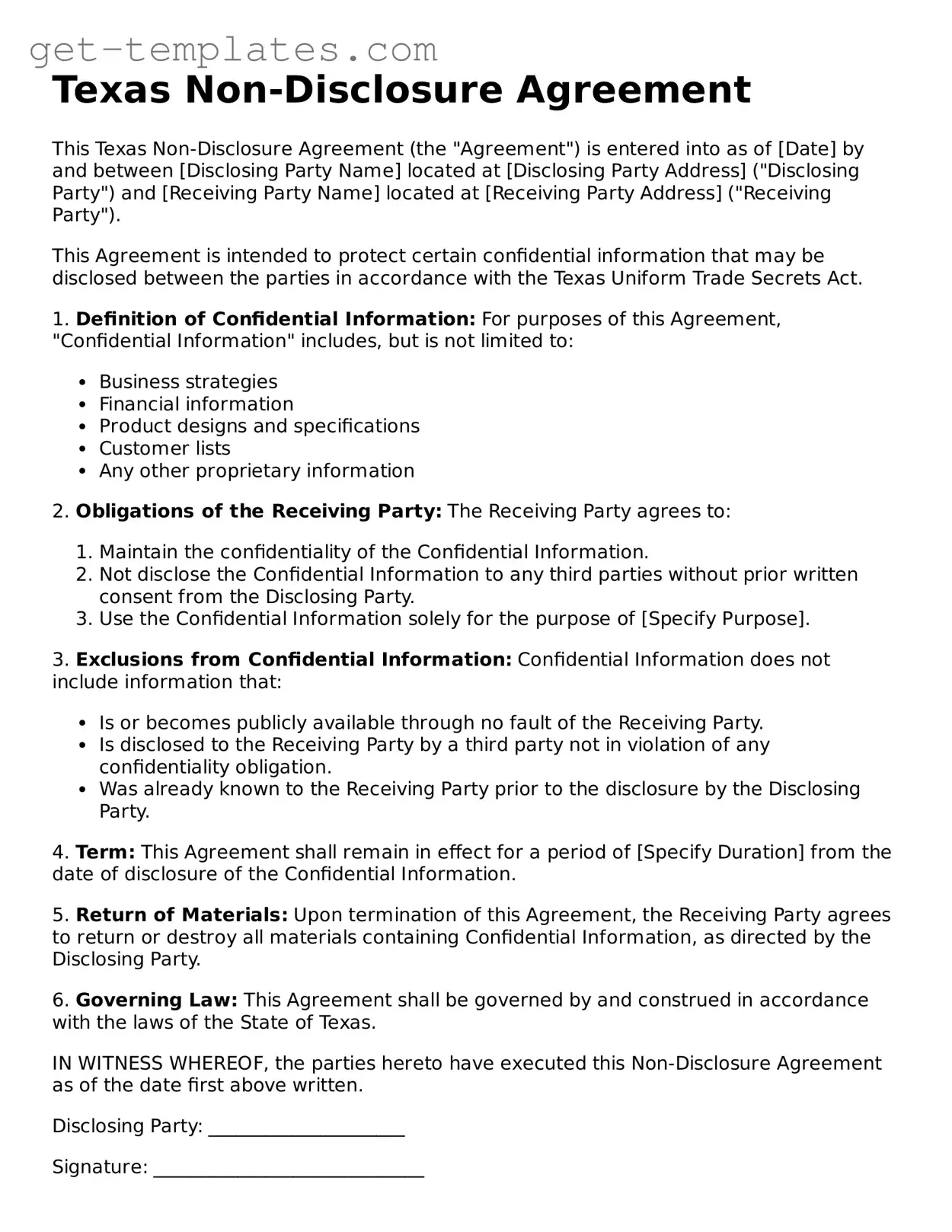Attorney-Approved Non-disclosure Agreement Document for Texas
A Texas Non-disclosure Agreement (NDA) is a legal document designed to protect confidential information shared between parties. This agreement ensures that sensitive data remains private and is not disclosed to unauthorized individuals. Understanding the key elements of this form is essential for anyone looking to safeguard their proprietary information in Texas.
Get Document Online

Attorney-Approved Non-disclosure Agreement Document for Texas
Get Document Online
You’re halfway through — finish the form
Finish Non-disclosure Agreement online — edit, save, download made easy.
Get Document Online
or
⇓ PDF Form
